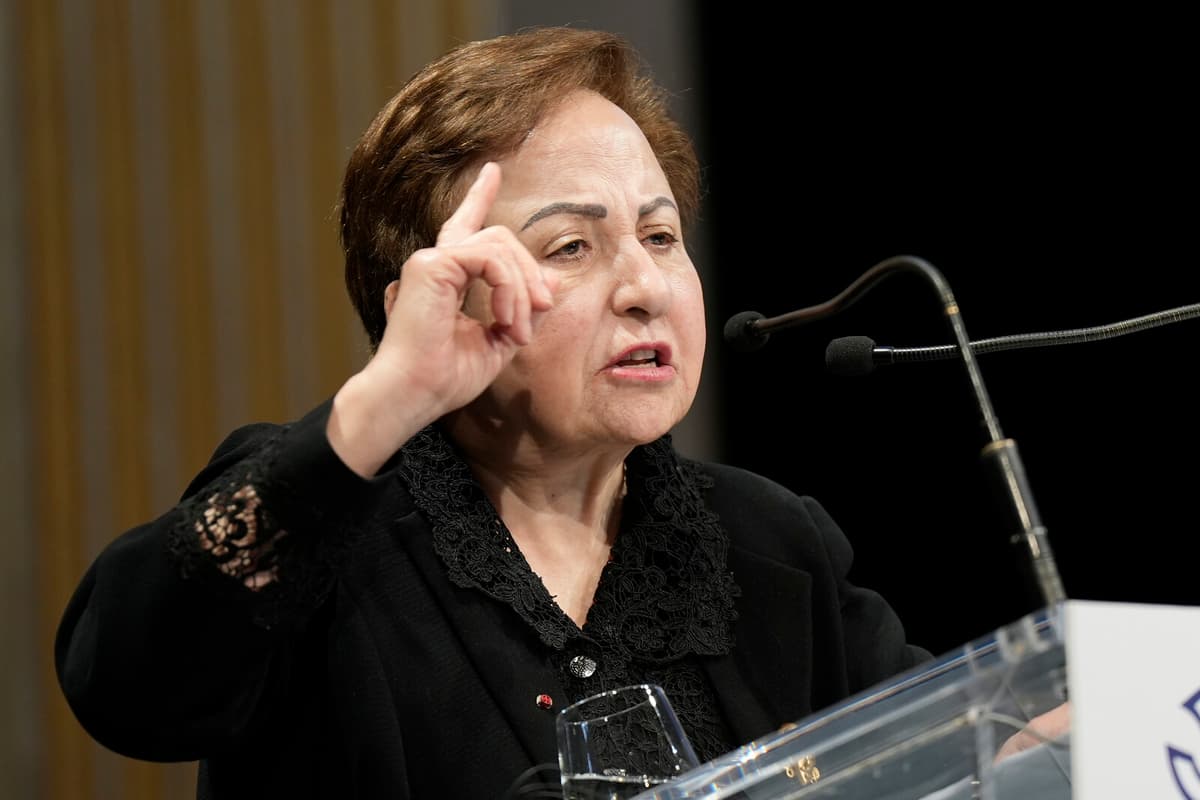Shirin Ebadi was one of Iran's first female judges when the Islamic revolution turned everything upside down in 1979. Under the new, patriarchal decrees, she was no longer allowed to continue with her profession. But she continued to practice law.
Instead of finding answers in the more Western-inspired legislation that characterized Iran before the revolution, Ebadi, herself a devout Muslim, turned to the holy scriptures. Through careful study of the Koran, she argued that both women and children should be respected, even in the new, Sharia-governed existence.
But it was in vain. Her legislative proposals were carelessly dismissed by the parliament. When she and the rest of the people went to the polling stations to vote for reforms, the votes were not respected. Together with other human rights activists, she wrote articles, but was met with censorship.
In recent years, she has stopped believing that it is possible to combine human rights with the Islamic republic, and instead hopes for a new revolution.
The regime has shown that it does not care about its population and prioritizes political Islam over everything else, even the people's lives, says Shirin Ebadi in an interview via link from London.
In Iran, she was imprisoned several times for her commitment to human rights. In the West, she was awarded the Nobel Peace Prize in 2003. Six years later, when her law firm, like many times before, was again stormed by revolutionary guards, she left her home country.
Incentive for the people
Although she has changed her opinion about whether a reform of the Islamic republic is possible, she remains firmly committed to her other conviction: Change in Iran must come from within. What the Western world can do to facilitate the people's desire for a secular democracy is not to help the dictator who rules today, she says.
One should not approach the regime, or resume economic relations.
Her hope is pinned on the young generation, whom she describes as strong feminists who "work harder than we ever did". If popular protests, like the nationwide "Woman, Life, Freedom" demonstrations in 2022, break out again, the regime will not be able to suppress them as forcefully this time, she reasons.
After the twelve-day war against Israel, the regime in Tehran is, according to Ebadi, weaker than ever, both economically and militarily. The forces that were previously used to shoot at demonstrators have had both their leadership and headquarters destroyed by Israel.
– When the supreme leader in a war situation goes and hides, and not even the president knows where he is, it is a sign that there is no order in the country, she says, referring to reports that Ayatollah Ali Khamenei during the war fled to a bunker, and for security reasons broke contact with everyone except a close confidant.
This should be an incentive for the Iranian people to take to the streets again.
Who should take over?
The threat from the own population is likely known to the leadership. Roadblocks have been set up in the major cities. Physical and digital surveillance has increased, and new legislation makes it easier to arrest and execute those who are alleged to collaborate with the state's enemies. But the Iranians have defied threats of violence before, and protested time and time again despite the risks.
One question remains, however: who should take over the leadership? So far, it is only Reza Pahlavi - whose father, Shah Mohammad Reza Pahlavi, was overthrown by the popular protests that preceded the Islamic revolution - who has expressed interest in leading the country during a transition period.
The idea that a Pahlavi should again rule Iran is controversial for many Iranians, since oppression and corruption were widespread the last time the family was in power. But there is also strong support among those who had it better during the time when Iran was a monarchy.
If republican groups are against Reza Pahlavi, they should present their own candidate, says Shirin Ebadi.
The Nobel laureate does not think that the differences between the various opposition groups are particularly relevant.
What matters is to overthrow the current regime. After that, the people themselves should be able to go to the polls to decide.
Shirin Ebadi was born in 1947 in Hamadan in western Iran. Before the Islamic revolution in 1979, she worked as one of the country's first female judges.
Because she is a woman, she was not allowed to be a judge after the revolution. She continued to work as a lawyer, and often took on pro bono cases to defend the rights of women, children, and minorities in the increasingly strict dictatorship.
In 2003, she became the first Iranian and the first Muslim woman to be awarded the Nobel Peace Prize.
Shirin Ebadi founded two human rights organizations in Iran, which she worked with, among others, Narges Mohammadi, who won the peace prize in 2023.
She has also worked closely with Nasrin Sotouteh, who is also a well-known lawyer and human rights activist in Iran.
All three women have been imprisoned several times for their commitment.
Source: Britannica






